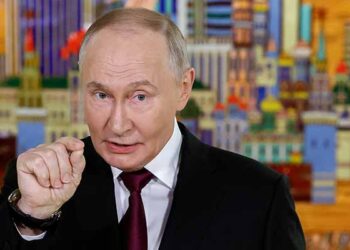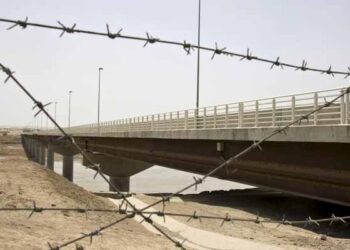Select Language:
China’s Foreign Minister Wang Yi Embarks on European Tour
China’s Foreign Minister Wang Yi departs the podium after signing a document at the signing ceremony for the International Organisation for Mediation Convention (IOMed) in Hong Kong on May 30, 2025. — AFP
- Wang Yi is set to visit the EU headquarters in Brussels, France, and Germany.
- Yi aims to enhance relations with the European bloc as a counter to the U.S. superpower.
- The ongoing conflict in Ukraine is likely to be a significant topic of discussion, especially regarding Beijing’s support for Moscow.
China’s chief diplomat, Wang Yi, is traveling to Europe on Monday in a visit that aims to showcase the importance of Sino-European ties as a "stabilizing factor" in a world marked by uncertainty.
Wang’s itinerary includes a stop at the European Union’s headquarters in Brussels, as well as meetings in France and Germany. His trip underscores China’s intent to bolster its relationship with the EU as a strategic counterbalance to the United States.
However, significant tensions linger, particularly concerning economics, illustrated by a substantial trade deficit of $357.1 billion between China and the EU, alongside China’s steadfast alliance with Russia in light of its ongoing conflict in Ukraine.
"The world is experiencing a rapid evolution of long-standing transformations, where unilateralism, protectionism, and bullying behaviors are becoming increasingly prevalent," stated Chinese foreign ministry spokesman Guo Jiakun on Friday, implicitly criticizing the U.S. under President Donald Trump.
Guo emphasized that, amidst these challenges, China and the EU must work together to "maintain global peace and stability, uphold multilateralism, promote free trade, observe international standards, and act as stabilizing agents in a turbulent global landscape."
Wang is expected to engage in a "high-level strategic dialogue" with his EU counterpart, Kaja Kallas, at the Brussels headquarters. In Germany, he will meet Foreign Minister Johann Wadephul to discuss diplomacy and security—marking his first visit since Germany’s new conservative government took office in May. Additionally, Wang will speak with French Minister of Europe and Foreign Affairs Jean-Noel Barrot, who visited China in March.
The situation in Ukraine is anticipated to be a critical topic, with European leaders vocal about what they perceive as Beijing’s support for Moscow.
While China positions itself as a neutral party in the Russia-Ukraine conflict, Western nations contend that its close ties with Russia offer critical economic and diplomatic backing to Moscow and have urged Beijing to exert influence to end the war.
Trade Tensions
Relations between Europe and China have become increasingly strained in recent years, as the EU attempts to adopt a stronger stance against what it considers unfair economic practices by China.
Following the imposition of tariffs on Chinese electric vehicle imports by the EU, China reciprocated with its own tariffs, including those affecting French cognac. Although a deal on cognac was reached, it has not yet been formally approved by China’s commerce ministry, according to a source in the French economy ministry.
This delay was said to be related to ongoing EU negotiations regarding electric vehicles.
Trade tensions escalated this month when the EU prohibited Chinese companies from selling government medical devices valued over five million euros ($5.8 million) in response to restrictions imposed by Beijing on foreign access to its market. This recent trade dispute encompasses a wide variety of healthcare supplies worth approximately 150 billion euros within the EU.
In retaliation, China accused the European Union of applying "double standards."
Another contentious issue is the export of rare earth materials. Since April, Beijing has mandated licenses for exporting these strategically important resources, which account for nearly two-thirds of global production and 92% of refined output, as reported by the International Energy Agency. These metals are critical for various industries, particularly in electric vehicle batteries, and there has been substantial criticism regarding how China handles the issuance of these licenses.
This month, China proposed the establishment of a "green channel" aimed at facilitating the export of rare earths to the EU, as reported by its commerce ministry.






